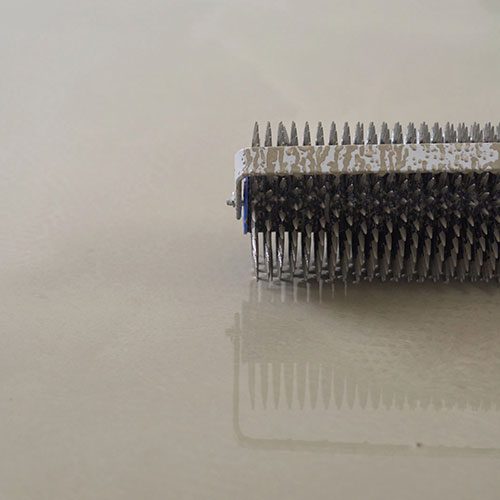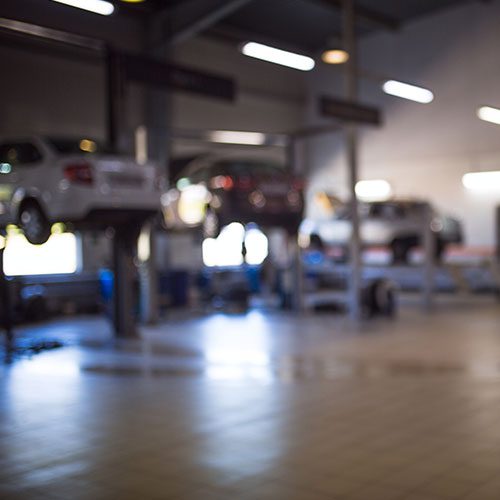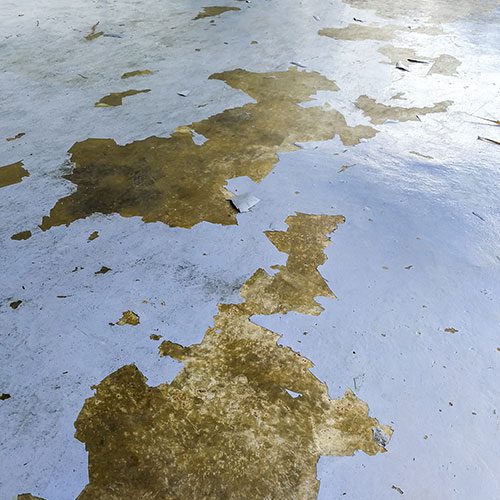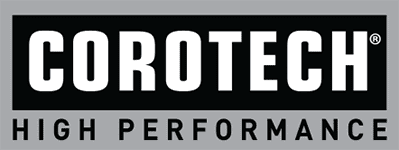Car Dealership Floor Coatings
Cambridge MA
Looking for help with Car Dealership Floor Coatings in Cambridge, MA?
Are you a Car Dealership Owner? Architect? Contractor? Property Manager? Or maybe someone from Cambridge just looking for more information on Car Dealership Floor Coatings services?
You’re in the right place…
Problem:
People who own car dealerships and other car showrooms are constantly concerned with keeping their floors looking great.
The problem is that traditional floor coatings like epoxy, urethane, or polyurethane can be incredibly expensive to install and maintain over time.
Solution:
Our polyurea concrete floor coating for showroom applications is affordable, easy to apply, low maintenance, and incredibly beautiful with a high-gloss finish sure to wow your customers. It’s a perfect solution for dealership owners inside and out.
Why Choose
Idea Concrete Coatings for Car Dealership Floor Coatings Services in Cambridge MA?
Because we have a reputation for quality work at a fair price. Our customer service is second to none. Our team is always responsive, courteous, friendly, and respectful.
Idea Concrete Coatings’ Car Dealership Floor Coatings services have helped hundreds of Business Owners, Property Managers and other individuals in Cambridge, MA and the surrounding communities. After some research, we’re confident you’ll find us to be the right Polyurea Flooring Contractor to handle your Car Dealership Floor Coatings projects.
With Idea Concrete Coatings, you’ll receive:
- Quality workmanship that is guaranteed to last
- Work from professionals who are honest and hardworking
- Dependable service that is completed on time and on budget
- Financing options to help fund your concrete coating project
- Free estimates and a fully insured crew

Benefits of
Car Dealership Floor Coatings:
Extremely Durable
Scratch-Resistant
Waterproof
High Gloss Finish
Fast-Curing
Easily Maintained
UV-stable / Fadeproof
Many Color Options
5X STRONGER THAN EPOXY
Car Dealership Floors Are A Big Investment — Look and Durability Are Important
Polyurea is the best way to protect your showroom floors and keep them looking new for years to come. It’s durable, easy to clean, and will never peel or crack like paint. We offer many different colors so you can customize your flooring in any way you want!
Polyurea Concrete Coatings are an excellent choice for any dealership flooring needs. They offer many benefits including being durable and easy to clean. Not only that, but they also provide a beautiful finish that will last years longer than traditional concrete coatings or paint jobs!
We can help your dealership stay cleaner and more professional by providing polyurea concrete coating services!
Avoid Cracking Due To The Fluctuating Massachusetts Winters With Polyurea Floor Coatings
Coating your concrete with polyurea ensures that the surface of the floor will not crack or deteriorate because it’s elastic and expands when exposed to a change in temperature. This is crucial for contractors who are working on large commercial projects where an entire structure can start to break down due to choosing the wrong protective coating.
Polyurea is the coating that lasts. Studies have shown concrete’s propensity to crack when temperature changes cause it to expand and contract, paving a way for its deterioration. Polyurea expands and contracts with your flooring surface ensuring no cracks will form within the first winter of use – which can be disastrous.
OUR PROCESS
24 Hour Floor Installation
STEP
Concrete Preparation
STEP
Concrete Repairs
STEP
Base Coat Application
STEP
Spread Colored Flakes
STEP
Final Preparation
STEP
High Gloss Finish
What is Polyurea Concrete Coating?
Polyurea floor coating is the toughest and fastest-curing form of concrete protection you can buy. Once applied, it’s shiny finish will last for years without any cracking or peeling if maintained properly. It can withstand more abuse and impact than any traditional epoxy coating, offers much better protection against harmful agents like oils, chemicals, and gas, and doesn’t stain, crack, or peel. Choose from hundreds of color schemes and looks to fit the style of any room inside or outside. Polyurea Car Dealership floors are a solid choice when considering your options to protect your car dealership floor from wear and tear. If you decide to use polyurea floor coating, your floors will look gleaming and new for many years to come, if maintained properly.
Why Choose Polyurea Floor Coating For Your Car Dealership Floors
1. Polyurea Coatings Withstand Everything
These top-quality floors can withstand all kinds of harmful impacts, extreme pressure, and chemical attacks. Due to its strength and durability these are often applied in commercial or industrial facilities that require heavy duty flooring materials due to their ability with immense temperature resistance. These sustainable products contain no volatile organic compounds (VOCs), which means they’re safe from the risks associated with indoor air pollution caused by chemicals like formaldehyde.
2. Polyurea Coatings Are Tough & Fast-Curing
This car dealership floor coating is super strong and resistant, taking only one day to install. Conveniently fast-curing in just 1-2 hours after application, this kind of surface will be ready for use in the next 24 hours! If you’re considering a professional contractor’s services, then your decision has already been made – because Idea Concrete Coatings gives you an excellent product that takes less than 1 day to install.
3. Easy To Maintain And Look Amazing
Polyurea floor coatings are beautiful, easy to clean, and a non-bubbling polymer with a crystal-clear finish. These qualities make them perfect for car dealership concrete floors as they provide outstanding protection and prevent insects from hiding in cracks or crevices. With no place to hide, these hardy creatures will be scared off by the smooth surface of your newly coated floor which can also withstand everyday wear and tear.
4. Your Car Dealership Is Safer With Polyurea
Polyurea coated floors are the safest option for any space. The coating creates a non-slip surface that is great for slippery surfaces, and it can withstand very high temperatures to provide fire retardant protection. Unlike epoxy floor coatings, polyurethane doesn’t emit harmful VOCs; they’re antibacterial and nontoxic as well!
5. Many Colors To Choose From
Car Dealership floors can get dull and gray, but now there is a lot more to offer for those who want something different. You can have decorative chips in your floor coating or you could opt for multiple colors that will make any Car Dealership unique. Whatever option you choose, it won’t matter because the options are durable and strong enough to last many years ahead!
Elias De Lana
Talk To The Owner
We understand that sometimes you just want to talk before scheduling an estimate.
We'll gladly help with any questions or concerns.
(617) 207-6300
Problems With Other Car Dealership Floor Coating Solutions Like Epoxy
Not only do other coatings start to crack and flake after a handful of winters, but they don’t do well in sunny weather either! This should be an important drawback for any contractor developing buildings with stone flooring, or anyone working in areas that have many painted driveways. Even if epoxy coatings hold up to protect the surface of your floors from UV rays, it will still deteriorate over time when exposed to natural light. Your beautiful floors might take on a yellow tinge if there is too much sun exposure- which could happen anywhere without enough shade coverage during the summer months. However this can all change depending on whether you use Polyurea Concrete Coatings!
PAINTER & FLOORING CONTRACTOR
Focused on Exceeding Expectations

★★★★★
See Reviews:
Houzz

★★★★★
See Reviews:
HomeAdvisor

★★★★★
See Reviews:
Yelp!
★★★★★
See Reviews:
Facebook
Map of Cambridge
Cambridge Overview
|
Cambridge, Massachusetts
|
|
|---|---|
|
City
|
|
|
From top, left to right Widener Library at Harvard University, Stata Center at the Massachusetts Institute of Technology, Central Square, Memorial Drive and the Charles River at night, view of Boston over the Mount Auburn Cemetery
|
|

Flag

Seal
|
|
| Motto(s):
Literis Antiquis Novis Institutis Decora (Latin)
“Distinguished for Classical Learning and New Institutions”“ |
|
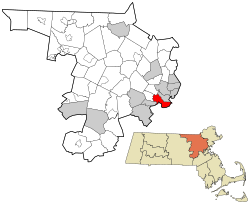
Location in Middlesex County, Massachusetts
|
|

Cambridge
Location in the United States

Cambridge
Cambridge (the United States)
|
|
| Coordinates:
42°22′25″N 71°06′38″W / 42.37361°N 71.11056°WCoordinates: 42°22′25″N 71°06′38″W / 42.37361°N 71.11056°W |
|
| Country | United States |
| State | Massachusetts |
| County | Middlesex |
| Region | New England |
| Settled | 1630 |
| Incorporated | 1636 |
| City | 1846 |
| Named for | Cambridge University |
| Government | |
| • Type | Council-City Manager |
| • Mayor | Sumbul Siddiqui |
| • Vice Mayor | Alanna Mallon |
| • City Manager | Louis A. DePasquale |
| Area
|
|
| • Total | 7.10 sq mi (18.38 km2) |
| • Land | 6.39 sq mi (16.56 km2) |
| • Water | 0.70 sq mi (1.83 km2) |
| Elevation | 40 ft (12 m) |
| Population
(2020)
|
|
| • Total | 118,403 |
| • Density | 18,529.42/sq mi (7,182.02/km2) |
| • Demonym | Cantabrigian |
| Time zone | UTC−5 (Eastern) |
| • Summer (DST) | UTC−4 (Eastern) |
| ZIP code |
02138-02142
|
| Area code(s) | 617 / 857 |
| FIPS code | 25-11000 |
| GNIS feature ID | 0617365 |
| Website | cambridgema |
Cambridge ( KAYM-brij) is a city in Middlesex County, Massachusetts, and part of the Boston metropolitan area as a major suburb of Boston. As of the 2020 United States Census, the city’s population was 118,403, making it the fourth most populous city in the state, behind Boston, Worcester, and Springfield. It is one of two de jure county seats of Middlesex County, although the county’s government was abolished in 1997. Situated directly north of Boston, across the Charles River, it was named in honor of the University of Cambridge in England, once also an important center of the Puritan theology embraced by the town’s founders.: 18
Harvard University, the Massachusetts Institute of Technology (MIT), Lesley University, and Hult International Business School are in Cambridge, as was Radcliffe College before it merged with Harvard. Kendall Square in Cambridge has been called “the most innovative square mile on the planet” owing to the high concentration of successful startups that have emerged in the vicinity of the square since 2010.
About Cambridge, MA
History
In December 1630, the site of what would become Cambridge was chosen because it was safely upriver from Boston Harbor, making it easily defensible from attacks by enemy ships. Thomas Dudley, his daughter Anne Bradstreet, and her husband, Simon Bradstreet, were the town’s founders. The first houses were built in the spring of 1631. The settlement was initially referred to as “the newe towne”. Official Massachusetts records show the name rendered as Newe Towne by 1632, and as Newtowne by 1638.
Located at the first convenient Charles River crossing west of Boston, Newtowne was one of several towns (including Boston, Dorchester, Watertown, and Weymouth) founded by the 700 original Puritan colonists of the Massachusetts Bay Colony under Governor John Winthrop. Its first preacher was Thomas Hooker, who led many of its original inhabitants west in 1636 to found Hartford and the Connecticut Colony; before leaving, they sold their plots to more recent immigrants from England. The original village site is now within Harvard Square. The marketplace where farmers sold crops from surrounding towns at the edge of a salt marsh (since filled) remains within a small park at the corner of John F. Kennedy and Winthrop Streets.
In 1636, the Newe College (later renamed Harvard College after benefactor John Harvard) was founded by the Massachusetts Bay Colony to train ministers. According to Cotton Mather, Newtowne was chosen for the site of the college by the Great and General Court (the Massachusetts legislature) primarily for its proximity to the popular and highly respected Puritan preacher Thomas Shepard. In May 1638, the settlement’s name was changed to Cambridge in honor of the university in Cambridge, England.
The town comprised a much larger area than the present city, with various outlying parts becoming independent towns over the years: Cambridge Village (later Newtown and now Newton) in 1688, Cambridge Farms (now Lexington) in 1712 or 1713, and Little or South Cambridge (now Brighton) and Menotomy or West Cambridge (now Arlington) in 1807. In the late 19th century, various schemes for annexing Cambridge to Boston were pursued and rejected.
Newtowne’s ministers, Hooker and Shepard, the college’s first president, the college’s major benefactor, and the first schoolmaster Nathaniel Eaton were all Cambridge alumni, as was the colony’s governor John Winthrop. In 1629, Winthrop had led the signing of the founding document of the city of Boston, which was known as the Cambridge Agreement, after the university. In 1650, Governor Thomas Dudley signed the charter creating the corporation that still governs Harvard College.
Cambridge grew slowly as an agricultural village eight miles (13 km) by road from Boston, the colony’s capital. By the American Revolution, most residents lived near the Common and Harvard College, with most of the town comprising farms and estates. Most inhabitants were descendants of the original Puritan colonists, but there was also a small elite of Anglican “worthies” who were not involved in village life, made their livings from estates, investments, and trade, and lived in mansions along “the Road to Watertown” (today’s Brattle Street, still known as Tory Row).
Coming north from Virginia, George Washington took command of the volunteer American soldiers camped on Cambridge Common on July 3, 1775, now reckoned the birthplace of the U.S. Army. Most of the Tory estates were confiscated after the Revolution. On January 24, 1776, Henry Knox arrived with artillery captured from Fort Ticonderoga, which enabled Washington to drive the British army out of Boston.
Between 1790 and 1840, Cambridge grew rapidly, with the construction of the West Boston Bridge in 1792 connecting Cambridge directly to Boston, so that it was no longer necessary to travel eight miles (13 km) through the Boston Neck, Roxbury, and Brookline to cross the Charles River. A second bridge, the Canal Bridge, opened in 1809 alongside the new Middlesex Canal. The new bridges and roads made what were formerly estates and marshland into prime industrial and residential districts.
In the mid-19th century, Cambridge was the center of a literary revolution. It was home to some of the famous Fireside Poets—so called because their poems would often be read aloud by families in front of their evening fires. The Fireside Poets—Henry Wadsworth Longfellow, James Russell Lowell, and Oliver Wendell Holmes—were highly popular and influential in their day.
Things Near By Cambridge
[rkfrt-neighborhoods title=”Neighborhoods” location=”Cambridge,MA” limit=”60″ sort=”asc”]
[rkfrt-activities title=”Cambridge, Massachusetts” location=”Cambridge,MA” limit=”9″ sort=”asc”]



